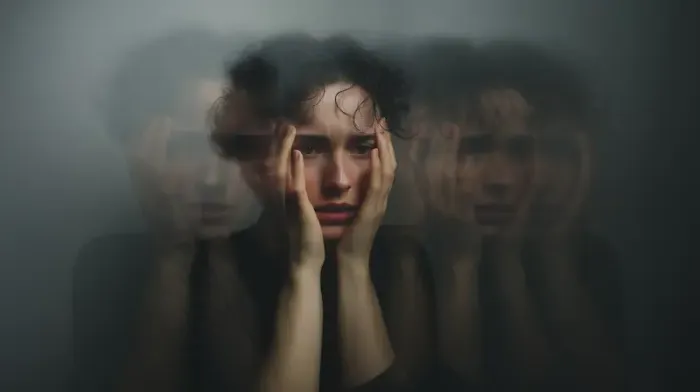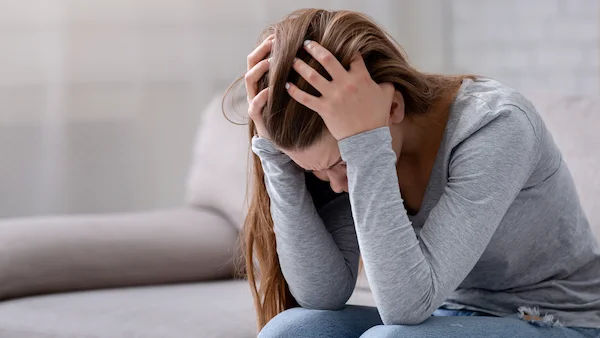Understanding Agoraphobia Symptoms, Causes, and Path to Recovery
Discover the symptoms, causes, and treatment options for agoraphobia. Learn how psychotherapy, medication, and coping strategies can support recovery.


Introduction
Imagine feeling an overwhelming sense of dread at the simple thought of going to the grocery store, standing in a line, or even being in an open space. This isn't just shyness or a preference for staying in; it's a gripping anxiety that can make the outside world feel like a threatening place. This is the reality for individuals living with agoraphobia, an often-misunderstood anxiety disorder. Far more than a "fear of open spaces," agoraphobia is a complex condition characterised by a fear of situations where escape might be difficult or help unavailable if panic strikes. This article will serve as a comprehensive guide, breaking down what agoraphobia is, its symptoms, root causes, and, most importantly, the effective treatment strategies that can lead to recovery and a regained sense of freedom.
What is Agoraphobia? More Than Just a Fear of Open Spaces
The classic definition of agoraphobia as a fear of open spaces is a vast oversimplification. In reality, it is a fear of situations or places that might cause panic, helplessness, or embarrassment. People with agoraphobia often fear these situations because they believe escaping might be difficult or that help wouldn't be available if things go wrong. Common triggers include using public transportation, being in enclosed spaces like shops or cinemas, standing in a crowd, or simply being outside of the home alone. The core of the disorder is not the place itself, but the fear of having a panic attack or other incapacitating symptoms in that place.
Agoraphobia and Panic Disorder: The Common Link
There is a strong link between agoraphobia and panic disorder. Often, agoraphobia develops after one or more panic attacks. The individual, fearing another attack, begins to avoid the location or situation where the previous attack occurred. This avoidance behaviour can snowball, gradually restricting the person's world to a few "safe" places, most often their home. While many with agoraphobia also have panic disorder, it is possible to be diagnosed with agoraphobia without a history of panic attacks. In these cases, the fear may be of other embarrassing symptoms, like dizziness, falling, or incontinence.
Recognising the Signs: Symptoms of Agoraphobia
The symptoms of agoraphobia extend beyond fear and manifest psychologically, physically, and through observable behaviour. Recognising these signs is the first step toward seeking help.
Psychological and Emotional Symptoms
These include an intense, persistent fear or anxiety about being in at least two different types of situations (e.g., public spaces, crowds, standing in line). This fear is often driven by thoughts like:
• "I won't be able to escape.
• "I'll have a panic attack and everyone will see."
• "No one will help me if I need it."
• A feeling of losing control or "going crazy.
• A sense of detachment from oneself (derealisation) or the environment (depersonalisation).Consult a Psychiatrist for Personalised Advice
Physical Symptoms of Anxiety and Panic
When confronted with a feared situation, or even when anticipating it, the body's fight-or-flight response activates, leading to panic attack-like symptoms such as:
• Rapid heart rate (palpitations) or chest pain.
• Shortness of breath or hyperventilating.
• Trembling, shaking, or sweating.
• Dizziness, light-headedness, or feeling faint.
• Nausea or gastrointestinal distress.
• Chills or hot flushes.
Behavioural Changes: The Cycle of Avoidance
• The most defining behavioural symptom is avoidance. A person will go to great lengths to avoid feared situations. This can lead to:
Needing a "safe person" (a friend or family member) to accompany them everywhere
• Becoming housebound, in severe cases.
• Inability to work, attend school, or run errands.
• A dependence on others for daily needs, leading to feelings of helplessness.
What Causes Agoraphobia? Unravelling the Triggers
There's no single cause for agoraphobia. It's generally believed to result from a combination of biological and environmental factors.
Biological and Genetic Factors
Research suggests a genetic component, as agoraphobia often runs in families. Differences in brain function, particularly in the areas that control fear response and anxiety, may also play a role. An imbalance in neurotransmitters like noradrenaline and serotonin, which regulate mood and stress, can contribute to anxiety disorders.
Environmental and Psychological Triggers
Often, agoraphobia is triggered by a stressful or traumatic event, such as the death of a loved one, an assault, or a serious illness. It can also develop in individuals with a history of other anxiety disorders, depression, or substance misuse. A temperament that is naturally nervous or anxious can also be a risk factor.
The Role of Trauma and Stressful Life Events
A significant stressful life event can act as the catalyst. For example, someone who has a severe panic attack while driving on a motorway may subsequently develop a fear of driving and then of all vehicles, eventually avoiding travel altogether. The memory of the trauma becomes associated with the location, creating a powerful psychological trigger.
How is Agoraphobia Diagnosed?
If you suspect you have agoraphobia, a formal diagnosis is crucial. If your fear and avoidance are significantly impacting your daily life, consult a doctor online with Apollo24|7 for further evaluation. They can provide an initial assessment and refer you to a mental health specialist.
The DSM-5 Criteria: What Doctors Look For
• A diagnosis is typically made based on criteria outlined in the Diagnostic and Statistical Manual of Mental Disorders (DSM-5). A specialist will look for:
Marked fear or anxiety about two or more specific situations (e.g., public transportation, open spaces, crowds).
• Consistent avoidance of these situations due to thoughts that escape might be difficult.
• Fear or anxiety that is out of proportion to the actual danger posed.
• Symptoms that persist for six months or more and cause significant distress or impairment in social, occupational, or other important areas of functioning.
Effective Treatment Options for Agoraphobia
The good news is that agoraphobia is highly treatable. The most effective treatment for agoraphobia usually involves a combination of psychotherapy and, sometimes, medication.
Psychotherapy: The Gold Standard
Talk therapy, particularly Cognitive Behavioural Therapy (CBT), is the most evidence-based treatment. It helps patients identify and change the negative thought patterns and behaviours that fuel their anxiety.
Cognitive Behavioural Therapy (CBT) in Action
CBT for agoraphobia works on two fronts. The cognitive part helps you challenge and reframe catastrophic thoughts ("I will definitely have a heart attack if I panic"). The behavioural part involves gradually facing your fears.
The Power of Exposure Therapy
A key component of CBT, exposure therapy, involves gradually and repeatedly entering feared situations in a safe and controlled manner. This starts with situations that provoke mild anxiety and systematically progresses to more challenging ones. This process, called systematic desensitisation, helps the brain learn that the feared outcomes are unlikely to occur, reducing the anxiety response over time.
Medication: A Supporting Role
Certain antidepressants, particularly Selective Serotonin Reuptake Inhibitors (SSRIs) like sertraline or fluoxetine, are often prescribed to help reduce the overall background levels of anxiety and the frequency of panic attacks. Sometimes, anti-anxiety medications like benzodiazepines are used for short-term relief, but they are generally not recommended for long-term use due to the risk of dependence.
Self-Help and Coping Strategies for Daily Life
While professional help is essential, there are coping strategies for agoraphobia that can support your recovery journey.
• Relaxation and Mindfulness Techniques: Practices like deep breathing, progressive muscle relaxation, and meditation can help calm your nervous system during moments of anxiety.
• Building a Support System: Don't isolate yourself. Educate trusted friends and family about your condition so they can provide encouragement, not pressure.
• Setting Small, Achievable Goals: Recovery is a process. Celebrate small victories, like walking to the end of your driveway or sitting in a parked car for five minutes.
What to Do If Someone You Love Has Agoraphobia
Supporting a loved one with agoraphobia requires patience and understanding. Avoid criticising or belittling their fears. Instead, encourage them to seek professional help and offer to accompany them to appointments. Most importantly, be patient; recovery takes time, and pressure to "just get over it" is counterproductive.
Conclusion: Reclaiming Your Life is Possible
Living with agoraphobia can feel like being a prisoner in your own mind and home. The world shrinks, and fear becomes the primary dictator of your choices. However, it is crucial to internalise this truth: agoraphobia is a treatable condition, not a life sentence. Through the powerful combination of psychotherapy, potential medication management, and dedicated self-help strategies, you can systematically dismantle the walls of avoidance. You can learn to manage anxiety, challenge catastrophic thoughts, and gradually reclaim the spaces and activities you've lost. The path requires courage and persistence, but the destination—a life of freedom and choice—is undoubtedly worth the journey. If your condition does not improve after trying these methods, book a physical visit to a doctor with Apollo24|7 to create a robust, personalised treatment plan.Consult a Psychiatrist for Personalised Advice
Consult a Psychiatrist for Personalised Advice

Dr Rohit Ranjan
Psychiatrist
10 Years • MBBS, MD (Psychiatry)
Bengaluru
Apollo Medical Center, Marathahalli, Bengaluru
(25+ Patients)

Dr. Kamal Kishore Verma
Psychiatrist
15 Years • MBBS, MD (SPM), DNB (Psychiatry)
Mathura
PEACEFUL MIND CLINIC, Mathura
(50+ Patients)

Dr Harish K S
Psychiatrist
6 Years • MBBS, MD Pychaitrist
Bengaluru
Apollo Clinic, JP nagar, Bengaluru

Dr. Satrajit Ghosal
Psychiatrist
8 Years • MBBS,MD(PSYCHIATRY)
Howrah
LILA HEALTH POINT, Howrah

Dr. Kommoju Venkata Eswar
Psychiatrist
8 Years • MBBS, MD Psychiatry
Avenue
Wellness Point, Avenue
Consult a Psychiatrist for Personalised Advice

Dr Rohit Ranjan
Psychiatrist
10 Years • MBBS, MD (Psychiatry)
Bengaluru
Apollo Medical Center, Marathahalli, Bengaluru
(25+ Patients)

Dr. Kamal Kishore Verma
Psychiatrist
15 Years • MBBS, MD (SPM), DNB (Psychiatry)
Mathura
PEACEFUL MIND CLINIC, Mathura
(50+ Patients)

Dr Harish K S
Psychiatrist
6 Years • MBBS, MD Pychaitrist
Bengaluru
Apollo Clinic, JP nagar, Bengaluru

Dr. Satrajit Ghosal
Psychiatrist
8 Years • MBBS,MD(PSYCHIATRY)
Howrah
LILA HEALTH POINT, Howrah

Dr. Kommoju Venkata Eswar
Psychiatrist
8 Years • MBBS, MD Psychiatry
Avenue
Wellness Point, Avenue
More articles from Anxiety disorders
Frequently Asked Questions
1. Can agoraphobia be cured?
While some people may experience a complete resolution of symptoms, 'management' is often a more accurate term than 'cure.' With effective treatment like CBT, most people can gain significant control over their anxiety and live full, unrestricted lives, even if they occasionally need to use coping skills.
2. What's the difference between agoraphobia and social anxiety?
While both involve avoidance, the focus is different. Social anxiety is a fear of being judged or embarrassed in social situations. Agoraphobia is a fear of the situation itself due to the perceived difficulty of escape or lack of help, regardless of who is there. Someone with agoraphobia might be fine with visitors at home, while someone with social anxiety might dread it.
3. Is agoraphobia a disability?
In its severe form, agoraphobia can be considered a disability under laws like the Americans with Disabilities Act (ADA) if it substantially limits one or more major life activities, such as working or leaving home. This can entitle individuals to reasonable adjustments in the workplace.
4. Can you develop agoraphobia later in life?
Yes. While anxiety disorders often begin in childhood or adolescence, agoraphobia can develop at any age. It commonly emerges in late adolescence or early adulthood, but onset in one's 30s or 40s is not unheard of, especially following a significant stressor or trauma.
5. How can I help someone with agoraphobia who refuses to get help?
This is challenging. Express your concern with empathy, not accusation. Avoid enabling their avoidance by constantly doing everything for them. Gently provide information about effective treatments and offer to help them find a therapist or accompany them to a first appointment. Ultimately, they must be ready to take that step themselves.



.webp)
